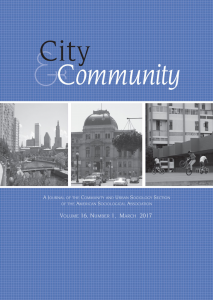Sexual Harassment, Culture, and Gender Norms
(Source: https://commons.wikimedia.org/wiki/Category:Sexual_harassment#/media/File:Army_stock_photograph,_reenactment_shot_by_Pfc._Elizabeth_Fournier_140403-A-IY594-001.jpg) In patriarchal societies, men tend to take advantage of their power, and privilege. This privilege comes so easily because it is invisible to them, which makes men blind to their control over society. Besides, the concept of privilege is based on its omnipresent invisibility. The affordances of privilege cost many people, more so women, relegation to the outliers of society, and nearly incapable of controlling power. At times, certain men have an inclination to enforce, and monopolize, on their...







1540-6210/asset/society_affiliation_image.gif?v=1&s=812a48e1b22880cc84f94f210b57b44da3ec16f9)
1530-2415/asset/SPSSI_logo_small.jpg?v=1&s=703d32c0889a30426e5264b94ce9ad387c90c2e0)